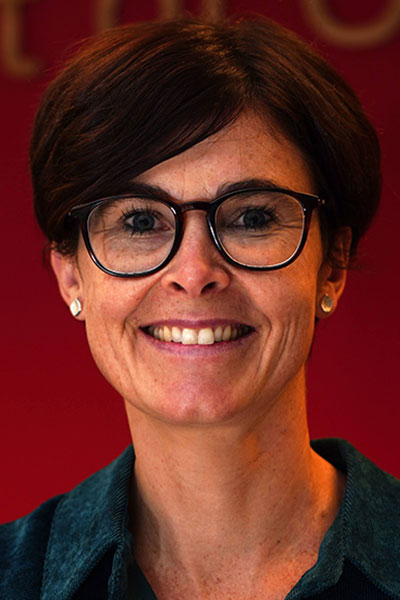A special workshop during the 2024 San Antonio Breast Cancer Symposium® will feature a panel of accomplished investigators who will share examples of technological advances that have driven important and clinically relevant discoveries in the field of the tumor immune microenvironment.
Translational Workshop: Cancer Immunology Discovery Approaches into Clinical Trials will take place on Tuesday, December 10, from 2 to 3:45 p.m. CT in Stars at Night Ballroom 3-4 of the Henry B. Gonzalez Convention Center.

Christine Desmedt, PhD, Associate Professor and Head of the Laboratory for Translational Breast Cancer Research at the Katholieke Universiteit Leuven (KU Leuven) in Belgium, will serve as moderator for the workshop.
Raza Ali, PhD, Associate Director of Clinical Academic Training at Cancer Research UK at Cambridge University in the United Kingdom, will discuss his group’s work using imaging mass cytometry to characterize the tumor microenvironment (TME) of triple-negative breast cancer tumors.
“They are using this technology to determine which tumors are sensitive to immunotherapy and to characterize the multicellular spatial dynamics of treatment using longitudinal tissue sampling,” Dr. Desmedt said. “They have found that both tissue architecture and cellular activation states are predictive of treatment response and have also shown that the impact of immunotherapy on tissue structure differs from chemotherapy with TME remodeling that is characteristic among immunotherapy sensitive tumors.”
Diether Lambrechts, PhD, Professor and Head of the Laboratory of Translational Genetics at KU Leuven, will explain how single-cell RNA and T-cell receptor sequencing have been applied in the context of checkpoint immunotherapy trials in triple-negative breast cancer.
“He will discuss how this work has led to the identification of T-cell expansion and will share new unpublished data about how these expanding T cells recognize tumor antigens specific for triple-negative breast cancer,” Dr. Desmedt said. “He will further explain how T-cell expansion can be used as an early response marker to checkpoint immunotherapy in triple-negative breast cancer.”
Christos Sotiriou, MD, PhD, Head of the Breast Cancer Translational Research Laboratory at Institut Jules Bordet in Brussels, Belgium, will talk about how spatial transcriptomics technology is being used to characterize the heterogeneity of triple-negative breast cancer.
“Dr. Sotiriou and his group have identified nine archetypes that recapitulate the spatial transcriptome of triple-negative breast cancer with different prognoses and potential differences in response to chemo-immunotherapy beyond the triple-negative breast cancer molecular classification,” Dr. Desmedt said. “They have also developed a tertiary lymphoid structure signature predicting response to immunotherapy in breast and other cancers.”
Emanuela Romano, MD, PhD, Medical Director of the Center for Cancer Immunotherapy at Institut Curie in Paris, will discuss how single-cell RNA sequencing of tumor-infiltrating lymphocytes can be a powerful tool that provides gene expression data at the level of individual cells and can be used to determine factors associated with treatment outcome.
“Dr. Romano’s research group has been looking at whether specific T-cell subsets and the T-cell receptor dynamics can predict the clinical outcome to combinatorial chemo-immunotherapy in advanced triple-negative breast cancer,” Dr. Desmedt said. “They have shown that clonal expansion could be a potential predictor of response and that both clonal reinvigoration of pre-existing tumor-reactive T cells and clonal replacement on treatment are important for a protective response to chemo-immunotherapy.”
Following the presentations, Dr. Desmedt will lead a panel discussion to conclude the session.
Access the 2024 SABCS® virtual platform
Watch any sessions you’ve missed and stay connected with fellow attendees in the online platform of the 2024 San Antonio Breast Cancer Symposium®. Recordings of sessions will be available on demand for registered 2024 SABCS® participants until March 31, 2025.

